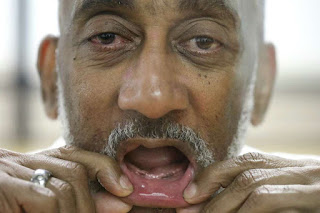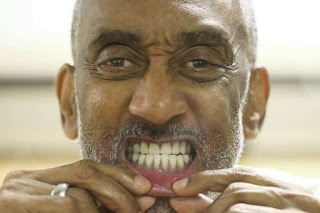I have problems: I'm out of clean clothes, I cannot find my glasses, my English paper is late, and my pockets are not big enough for all the heroin I have.*
That's the first sentence of Keri Blakinger's gobsmackingly terrific memoir, Corrections in Ink. And if you can read that sentence and not find yourself compelled to read on . . . well, you're a different person than I am. Still, if you need more convincing, here's the last paragraph on that first page:
In a minute, there will be police, with questions and handcuffs. By tomorrow, my scabby-faced mugshot will be all over the news as the Cornell student arrested with $150,000 of smack**. I will sober up to a sea of regrets. My dirty clothes and late English paper -- one of the last assignments I need to graduate -- will be the least of my problems.As that might suggest, Keri Blakinger is not the typical drug-dealer client we've all had. Oh, sure, she was a serious drug addict, living on the streets, dealing and hooking for the cash to keep the drugs flowing, her arms so hopelessly covered in tracks that she was regularly a bloody mess shooting up between classes. But she was white, a straight A student at an ivy league college, from a comfortably middle-class family, a competitive figure skater who twice made it to the national finals.
That privilege makes a difference, of course, but there are limits even to that. Blakinger spent a year or so in county jails, then another year in prison. And as she writes about her time on the streets, so she writes about her time in custody. There's some real, and maybe surprising, camaraderie among some of the inmates. But mostly there are the random searches, the pretend discovery of contraband, the strip searches after a visit where the women are forced to pull out their tampons as part of the inspection. And there's the woman who got raped and was, as punishment, sent to solitary. Mostly three's the dehumanization.
There's more to the story, though. While in the county jail, she and one of the guards become friends. After she's shipped to prison, he visits her. While she's on parole, they live together. No surprise that doesn't work out. But other things do. She talks Cornell into letting her back in (though not onto the campus - she has to finish her degree through off-campus classes), then graduates. She gets a job with an Ithaca paper, then the New York Daily News. She moves to Texas for a job with the Houston Chronicle where she breaks the story that the Texas prison system won't provide dentures for inmates with no teeth. That story got national play. And TEXAS STARTED PROVIDING TEETH.
Blakinger writes for the Marshall Project now. She's a success, but she recognizes that some of it is luck, that a lot of it is due to her white, middle-class privilege. Still, she made it. Others she writes about, aren't so lucky. And she's written this absolutely terrific book about it all. It's about her, of course. But it's also about a system infected with racism and violence and needless suffering. And inhumanity. Especially she says, inhumanity, which makes the rest possible.
And the futility, the small cruelties, the refusal to see us as fully human - it was not a flaw in the system. It was the system.















No comments:
Post a Comment